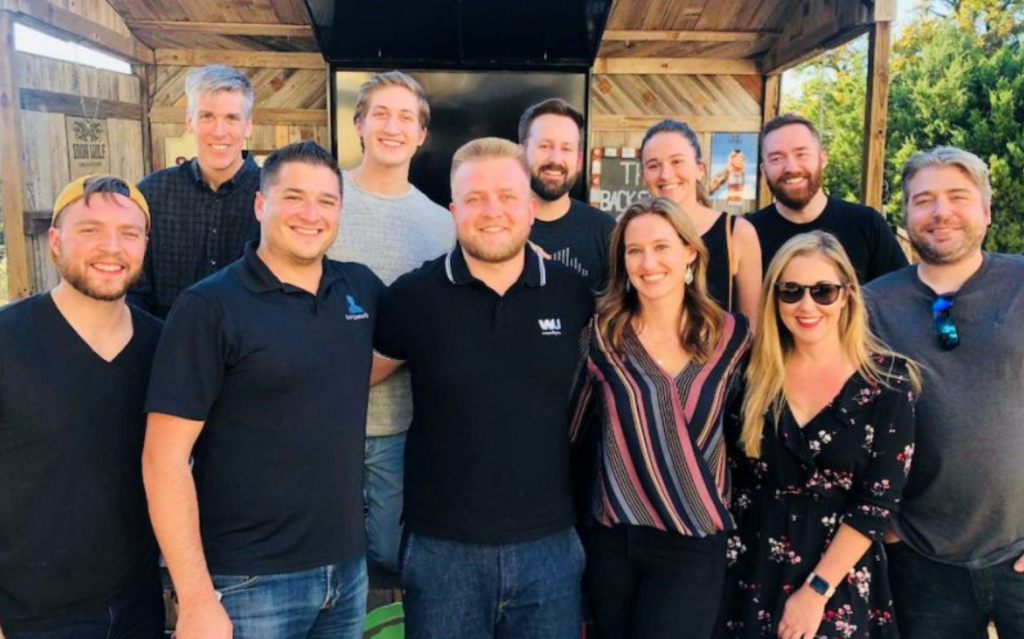In the world of business and innovation, Maksym Petruk, the CEO of WeSoftYou, has a fascinating story to tell.
In this article, he shares insights into his transition from the corporate sector to venture capital, sheds light on the principles guiding his investment choices, reveals his passion for startups, imparts lessons learned along the way, and outlines his strategic approach to succeeding in this dynamic domain. Enjoy the story.
A portrait of an investor. Festina Lente
There is a Latin expression festina lente, attributed to the Roman emperor Octavian Augustus. My favorite interpretation is that the quickest way to do something is to do it the first time with a lot of preparation. I started my career with a global tobacco company, working my way up from the bottom to the top. However, upon my return from an international assignment where money was paid in foreign currency and the hryvnia devaluation in 2015, my salary dropped from $2,000 to $600. Then I started looking at IT and decided to leave the company in 2016.
During this period in Ukraine, there was a real boom in IT and startups, which for a long time remained a real gimmick. I, too, was a part of it and had the temptation to do a job in one of these companies. But the true revelation didn’t happen. At that time, I did not see any great startup opportunities here. There was no internal market, no venture capital market. There was no ecosystem, and the whole thing reminded me of the Wild West. Compared to the potential benefits, there were too many risks and uncertainties.
Good thing there is always an alternative. After an unsuccessful attempt to dive into the world of startups, I decided to finally quit this activity and play the tried and tested way without the weirdos. This is how WeSoftYou was born, where I am working now. My first attempt to build a booming business turned out to be more than flourishing, which often caused real amazement even to me.
I frequently joke that I’ve only had two lines of work experience on my resume in so many years of life. It didn’t work out to be a trendy serial entrepreneur! Nor can I talk about soul-searching, suffering, and self-discovery. In short, no romantic life of a stereotypical founder here. And so it happens. But you can’t escape fate.
Some of my first clients were startups, and there were a lot of them. Startups were literally in front of my eyes, frequently offering me a stake in the project in exchange for money and other bonuses. In general, after a while, I became sympathetic to them because there were some genuinely exciting products. I wanted to be a part of these stories and see what was happening.
The processes within the company were already in place and the business was on its feet, freeing up resources for other activities. As a result, I decided to return to investing, but more seriously and thoroughly, by becoming an angel.
I like venture capital not so much for the money but for the opportunity to experiment. It is more of a hobby for me. It is always intriguing to see how investments turn out. What will happen to the company and the product over time? Are the hypotheses and assumptions justified? With startups, I feel like a scientist in a laboratory, mixing different reagents and watching the reactions. With real estate, you do not get that kind of emotional charge.
First Steps in Venture Capital Investing
In my opinion, the biggest difficulty in investing is due diligence. No amount of money will help. Startups are special by nature, there are many of them and they are all different.
I once had the experience of attending WebSummit as an investor. It is always interesting to watch pitches, especially when there are few of them. However, when I received dozens of pitch decks and mailings from the organizers after the event, I didn’t know what to do with them. After reading just a few presentations, my brain was already buzzing, and I had no energy or desire to do anything startup-related.
Venture investing may seem easy, but it is not. To do it professionally, you need not only special knowledge but also a lot of time. Searching, reading, and analyzing dozens and hundreds of pitch decks to select quality deals is possible for full-time experts, but not for angels who have their worries to take care of.
Joining syndicates and clubs is a good solution not only for beginners because here startups are evaluated by specialists. We, in turn, get to see already proven companies. Such an approach significantly reduces risks and saves time.
My first recommendation to new investors is to stick to what you understand. Start by choosing the industry or industries you like best. Then research your choices: read profile blogs, expand your network, and connect with the right people. The main thing is to focus your attention because it’s unlikely that you’ll be able to know everything about everything at a decent level.
In particular, I specialize in web3, fintech, edtech, and healthcare. Why these industries? It’s because these are the startups that have most often approached my company for services. That’s how I got to know them better.
The second recommendation is to pay special attention to the topic of exits. You need to understand exactly how investors in startups make money, whether it is through M&A, secondary market, or IPO. This information will come in handy when evaluating the company’s prospects.
Crafting a Winning Investment Strategy: Maksym’s Approach
In the case of pre-seed and seed-stage startups, I look at two criteria: team and operational complexity. What I don’t look at is the market, unit economics, and other piles of numbers, which I don’t think play a big role here.
The key challenge for all early-stage startups is product-market fit. Metrics and precise calculations are the prerogatives of Series A and beyond.
In other words, in the early stages, a startup has to understand where to dig. Only then does it need to dig, i.e., grow and scale.
A startup does not need rocket science and formulas to figure out where the treasure trove is.
Let’s get back to the team. A startup’s team must not only want to build a product but also be able to do so. You require the right team composition to cover all stages of business development: from conception and development to launch and sales.
Recently, I had the negative experience of investing in a project that didn’t listen and shut down because it lacked a sole specialist. The startup was building an app. The idea was interesting and promising. But things did not go according to plan because the founders were unwilling to hire a product manager, instead they hired a CTO, twice.
The good team simply didn’t have a person who knew the product specifics. What is the secret to any software app? Traffic, attracting it, and monetizing it through the right funnel. But the managers decided otherwise, they ran out of money, end of story.
The technology itself is useless if you can’t package it and sell it properly. Young founders for some reason love the technical part and forget all about the product and its usefulness to the end user. In my personal experience, most startups don’t need a CTO at all. Today, the technical side of a startup is easily solved, even by outsourcing. What startups lack is domain expertise. They often know how to build a product, but have no idea what to do with it next.
In Ukraine, a good example would be Reface with its strong expertise in artificial intelligence. Their CTO is, in my opinion, one of the best AI specialists in all of Europe! He’s been working on this topic since 2010 when people couldn’t figure out even HTML.
They had cool technologies, but that could have been the end of it if a proper CPO had not joined the team. It was the right product solutions (features, monetization) and well-organized work with the rest of the team (marketing, scaling, AI itself) that made Reface the way we know it today. Viral, cool, and world-famous.
And finally, let’s talk about operational complexity. The more complex a startup is, the less likely it is to succeed. Sometimes I look at a pitch deck and everything is so fancy that it is unclear how the startup is going to execute.
There was a startup in my portfolio in the delivery category that had an epic pitch deck for 100 slides. The investors included McKinsey and the Big Four, while the founders consisted of their former employees. It’s serious. The startup thought of everything in detail, but trivial questions destroyed the idea. How exactly are they going to hire so many people in different countries? Where will they find so much storage space?
The operational burden was so overwhelming and complicated that it beat the startup. By the way, I invested there as an experiment. But it ended as expected and there were no miracles.
To sum up, my understanding of success is a path from point A to point B with a minimum number of mistakes. Therefore, when choosing a startup, I look for projects that will stumble as little as possible along the way.





















